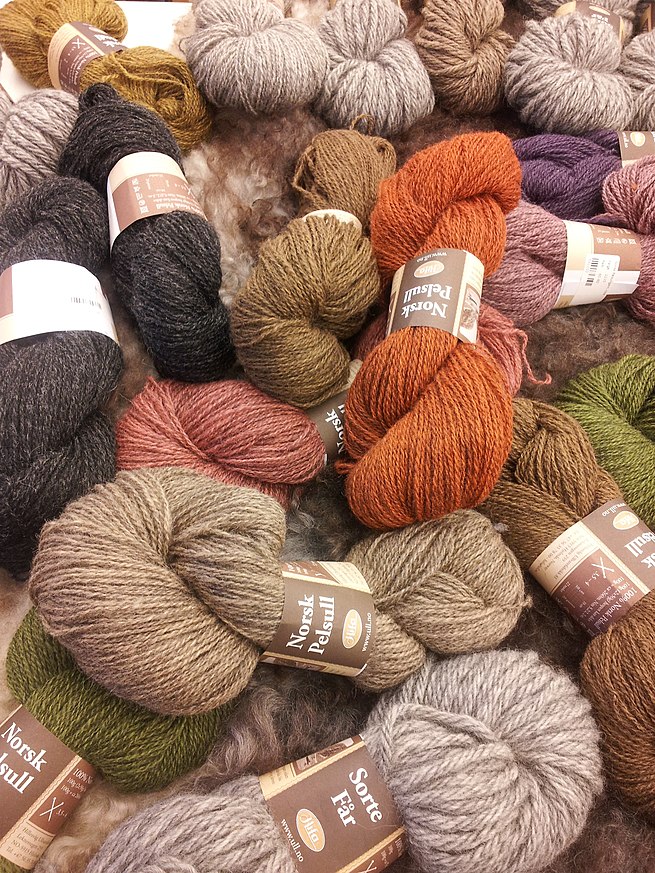
Main Difference
The main difference between Yarn and Twine is that the Yarn is a long continuous length of interlocked fibers and Twine is a light string or strong thread
-
Yarn
Yarn is a long continuous length of interlocked fibres, suitable for use in the production of textiles, sewing, crocheting, knitting, weaving, embroidery, or ropemaking. Thread is a type of yarn intended for sewing by hand or machine. Modern manufactured sewing threads may be finished with wax or other lubricants to withstand the stresses involved in sewing. Embroidery threads are yarns specifically designed for needlework.
-
Twine
Twine is a light string or strong thread composed of two or more smaller strands or yarns twisted, and then twisted together. More generally, the term can be applied to a cord.
Natural fibres used for making twine include, wool, cotton, sisal, jute, hemp, henequen, and coir. A variety of synthetic fibres are also used.
-
Yarn (noun)
A twisted strand of fiber used for knitting or weaving.
-
Yarn (noun)
Bundles of fibers twisted together, and which in turn are twisted in bundles to form strands, which in their turn are twisted or plaited to form rope.
-
Yarn (noun)
A story, a tale, especially one that is incredible.
-
Yarn (verb)
To tell a story or stories.
-
Twine (noun)
A twist; a convolution.
-
Twine (noun)
A strong thread composed of two or three smaller threads or strands twisted together, and used for various purposes, as for binding small parcels, making nets, and the like; a small cord or string.
-
Twine (noun)
The act of twining or winding round.
-
Twine (noun)
Intimate and suggestive dance gyrations.
“1965, Wilson Pickett, Don’t Fight It (blues song), BMI Music.”
-
Twine (verb)
To weave together.
-
Twine (verb)
To wind, as one thread around another, or as any flexible substance around another body.
-
Twine (verb)
To wind about; to embrace; to entwine.
-
Twine (verb)
To mutually twist together; to become mutually involved; to intertwine.
-
Twine (verb)
To wind; to bend; to make turns; to meander.
-
Twine (verb)
To ascend in spiral lines about a support; to climb spirally.
“Many plants twine.”
-
Twine (verb)
To turn round; to revolve.
-
Twine (verb)
To change the direction of.
-
Twine (verb)
To mingle; to mix.
-
Twine (noun)
strong thread or string consisting of two or more strands of hemp or cotton twisted together.
-
Twine (noun)
an instance of moaning or complaining
“having a good twine today—well, I am British and we do love complaining!”
-
Twine (verb)
wind or cause to wind round something
“she twined her arms round his neck”
“the plant will twine round its support”
-
Twine (verb)
interlace
“a spray of jasmine was twined in her hair”
-
Twine (verb)
moan; complain
“stop twining on about the snow”
“Sorry—I don’t mean to moan at you. I’ve twined about it enough over the years”
